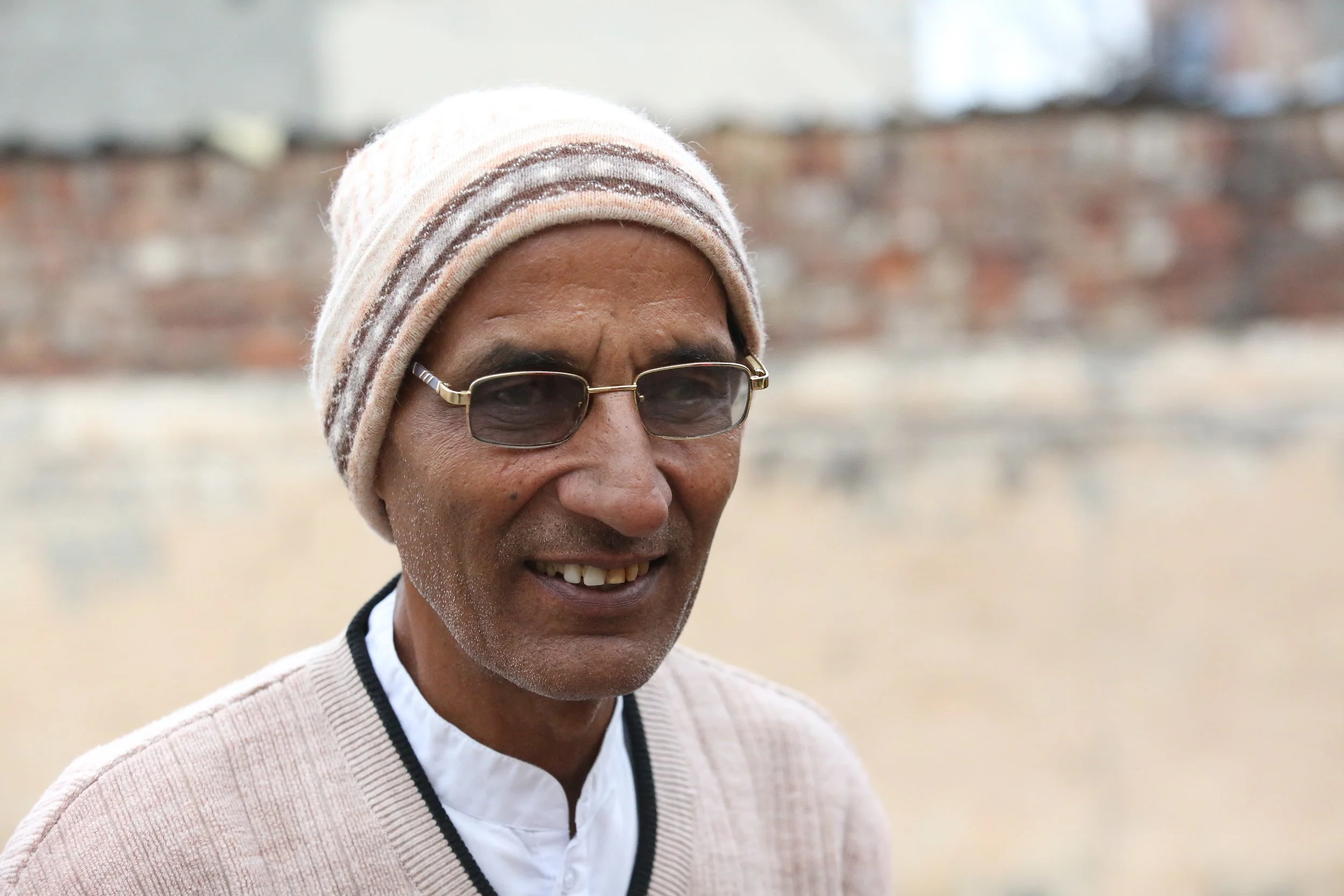The stairs to god
Haryana folk musician Balbir Sharma never gave up on his passion, despite pressure from his father. Now, his songs weave through his family and community.
By Anna Kapsner
Photo by Talia McWright
Balbir twisted a stick through the ventilation hole in his room, lifting the latch locking his door from the outside. A folk music program played that night, but Balbir’s father had forbidden him from attending and locked him inside.
Balbir wanted to become a folk musician despite his parents’ wishes. He says his education prevented him from studying music under a guru, but he decided to learn everything he could from attending as many programs as possible.
More than 40 years later, Balbir Sharma, 60, has achieved his dreams. While his farmland and government job in public relations provide for his family, his love of music has only grown. He teaches and performs Haryana folk music.
“I have a passion for music. I will keep doing it until I become old and my voice is not in good condition,” Balbir said. “I will keep doing it as long as I have the people’s love.”
Balbir and son Govind tie rubber onto a pot to create a ghadva drum Jan. 8. The pots are typically used to carry water and other food but are also used as instruments for folk music. “Life is a beautiful journey and we should enjoy it,” Balbir said. | Photos by Talia McWright
Chajjuram, Balbir’s father, wanted his son to study and get a “good job.” They were a wealthy and from an upper caste, and Chajjuram said there was neither money nor prestige in music. He told his son no one would marry him if he became a singer and instead purchased a tractor for Balbir. For three years, Balbir appeared to obey his father, spending time in the fields and marrying his wife, Ramkali, when they were 17.
But Balbir discreetly continued to attend and perform in folk music programs, learning and practicing vocals and instruments. Once, Balbir traveled three hours from his village of Deoban to buy a banjo so he could play while alone in the fields. Over time, he became a master of vocal performance, the harmonium, the banjo and the ghadva — a Haryana folk instrument made from stretching rubber over the mouth of a water jug to make a drum.
“It was a great conflict between me and my father, but my mother motivated him to say, ‘Let him do what he wants,’” Balbir said.
Balbir wanted his father to support his music and attend a performance, but he was afraid to ask. By age 20, Balbir had traveled with a group of musicians and was ready to organize his first program. He played the Vishwakarma Day Festival, which honors the craftsmanship of artisans, engineers and laborers. The villagers gathered in front of an open-air stage. His mother, Chameli, surprised him there. She stood at the front of the crowd, watching her son perform for the first time.
“I will be happy with the talent I have and I will do my work well. I will not lose. I will not be shy. I will not be afraid.”
“I will be happy with the talent I have and I will do my work well,” Balbir told himself before his performance. “I will not lose. I will not be shy. I will not be afraid.”
After the performance, Balbir’s friends told him Chajjuram attended the program. Decades later, Balbir recalls the certainty he felt during his performance that his father was watching. When he returned home that night, he and his father did not speak. But the following day, Chajjuram called Balbir into a side room and told him to sit.
“He said he appreciated my music and gave me his blessing,” Balbir said. “He told me, ‘Always remember two things. Always be honest and loyal; do not cheat anyone. And always do your best.’ The cost of my hard work was a success when my father said those words to me.”


